Fidel Gamboa, proud Nicoyan and excellent musician, was the leader of the Costa Rican musical group Malpais. On August 28th, Fidel died of cardiac arrest, unexpectedly ending a chapter for his followers, but the humble legacy of this man, who for 30 years was dedicated to music, will remain forever in the hearts of the Ticos.
Malpais, composed of six versatile musicians whose repertoire included new age, jazz, rock and classical music, was formed in 1999 and first performed in concert in 2001. Fidel Gamboa sang, played guitar and flute, composed and arranged music and directed the group.
With its first disc, "Uno" (One), in 2002, Malpais was received as a phenomenon with a distinct personality. The group's songs sounded different from everything that had been done before in Costa Rica, but the public identified with them immediately. Age or nationality didn't matter; everyone was equally seduced by Malpais.
Fidel's uncle, folklorist Max Goldemberg, was always close to him and remembers the infancy of this man who grew to be broad, with short curly hair; and had a serene, even shy, disposition. Max told VON about his nephew's early years in the Colonial city of Nicoya.
Fidel was born on August 6, 1961, in a place that back then was called the Unidad Sanitaria (Sanitary Unit), on the south side of the city's park. At the time, there was no hospital in Nicoya.
"I remember that when he was still very little, his parents went to live in San Jose, in Colonia Kennedy, but for his elementary school and high school vacations he always came to my parents' farm to spend his vacation there," said Max. |
|
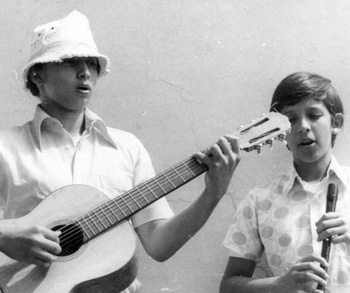 |
| |
|
| |
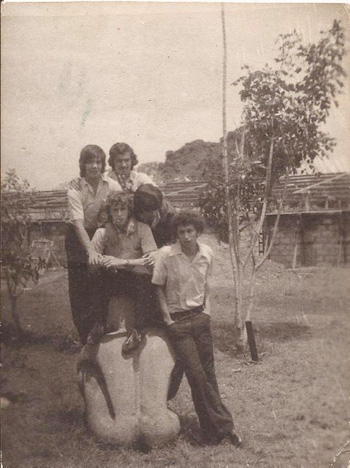
Fidel Gamboa is the young man with his feet on the ground |
Music reverberated in each word and in the Guanacaste evenings shared in Fidel's family. His uncle recognized that his nephew's destiny was already written.
"It was no coincidence that he was a musician; Fidel was always surrounded by a musical family. His great-grandfather Isolina Centeno, better known as La Chola (from which the name of the group's marimba was derived) was part of a family that had a fondness for singing. In addition, he had his grandmother Esperanza and his great-uncle, Adan Guevara (Costa Rican intellectual and folklorist) That's why I tell you, it wasn't coincidence; music ran in the blood of the family," he recalled.
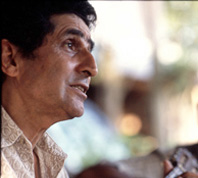
|
|
Max reflected that when Fidel was about 12 years old, he and his brothers, after playing soccer, used to arrive at his house and would start singing something that they had invented themselves.
"Fidel was learning to play the guitar. Little by little he was taking up music; he had already started to develop when he was about to leave elementary school. What I never understood was the way he learned a method for playing guitar," recalled Goldemberg. |
Between composing songs, his uncle Max told us that Fidel dedicated time to planting fruit trees and ornamental plants. "Fidel was in love with Guanacaste; he always came, was always following his grandfather and went with him to milk the cows. He also ate a lot." During this time, Fidel was already painting and sculpting.
Then in 1976, in Castella High School, Fidel participated in a Jazz group that was called Jazz Rock Castella where he made his first arrangements; it was a group of Musica Antigua (music played with Costa Rican antique instruments) and he played the flute sweetly, but he also played percussion, the bass drum, which was the easiest.

|
|
"He played regularly with Adrian Goizueta, and with him he had the opportunity to go to Cuba and study saxophone, which was Fidel's instrument. When he came back from Cuba, he became a steady musician for Goizueta, played saxophone, transverse flute and occasionally sang. He did this for 17 years," remembers Max.
In 2001, after Fidel's time with Goizueta, Malpais was born. The group only survived for a decade, but it was enough time so that today all Nicoyans know that from their land's womb a great artist was born. |
As one stanza in the song Epitafio (Epitaph) puts it: "Dust I am, because dust I always was, but the dust that I am smells of jazmin."
Goodbye Malpais
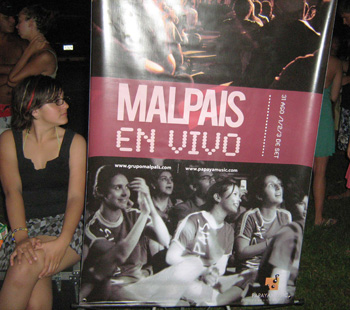 |
|
A well-known saying states: Every story has an ending, but in life, each ending is a new beginning. Malpais will end, and its surviving members will each find a new path. Yet first, they will say "Goodbye." On November 18 they will give a final concert in the National Stadium, where they will introduce a CD with their final unreleased tracks. |
For the night, they will be accompanied by the Philharmonic Orchestra along with national groups and soloists.
Renowned voices and talents will join with Malpais to pay tribute to the work of Fidel Gamboa: the National Philharmonic Orchestra, under the baton of its conductor, Marvin Araya, will perform Malpais' most recognized songs. Pato Barraza, Bernardo Quesada, Humberto Vargas, Adrián Goizueta, María Pretiz, Arnoldo Castillo, Sonsax and other national and International artists, including Nicaraguan Perrozompopo, will lend their voices to fill the stadium with the work of one of Costa Rica's most beloved musicians.
The concert will also be the occasion for launching the CD collecting the last songs composed by Fidel, some of which weren't even known by the members of Malpais. Fidel's voice was recorded and the musical arrangements were finished.
For the concert in the National Stadium, musicians as well as technical personnel are volunteering their work, and the organizers will donate funds raised by the box office ticket sales to Fidel's family. Likewise, all income generated by the CD and promotional materials will benefit this extraordinary musician's family. |
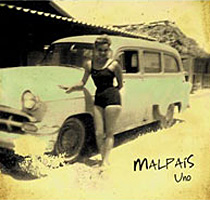
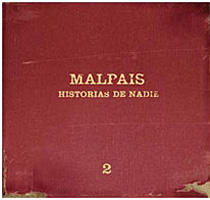
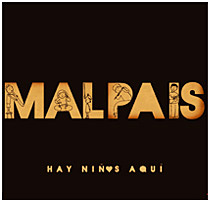
|
 |
|

